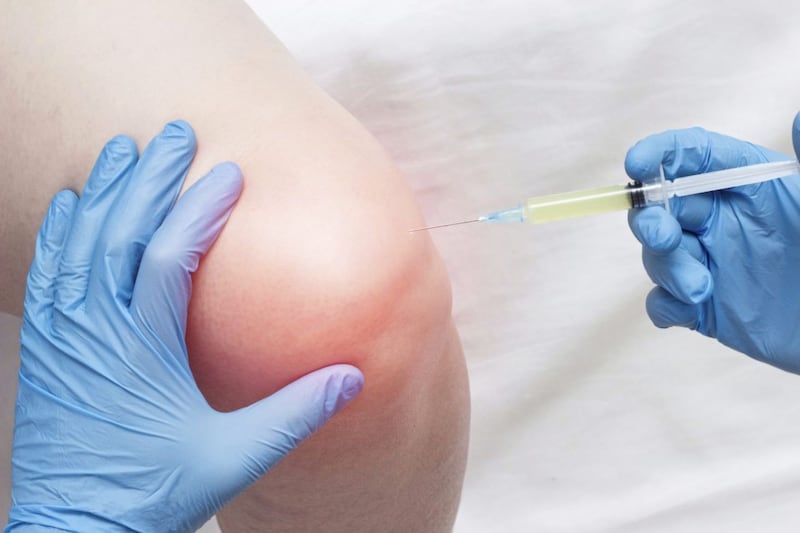A JAB of placental tissue may help alleviate the pain of arthritic knees. The treatment is made from the inner layer of the placenta, which provides the growing foetus with oxygen and nutrients.
Earlier research shows that a single injection of the tissue – which is first processed – can reduce pain and other symptoms associated with osteoarthritis for up to one year.
Now around 700 people are taking part in a trial due to start in the US this month to compare the jab to a placebo of saline solution.
Around one in five adults aged over 45 years – more than four million people – has osteoarthritis of the knee, according to the charity Versus Arthritis.
In a healthy knee, cartilage covers the end of the bones in a joint, acting as a cushion, and provides a smooth, gliding surface to allow painless movement. But in osteoarthritis, this protective surface breaks down through wear and tear, causing pain, swelling and problems moving the joint.
A wide range of treatments are available, from weight loss to take pressure off the joint, to painkillers. Many people ultimately need a joint replacement.
The new treatment, ReNu, developed by UK-US-based firm Organogenesis is made of cells from the amniotic membrane, the inner layer of the placenta which is, with the mother’s permission, harvested from the placenta donated after childbirth.
Amniotic tissue is a rich source of stem cells, which can develop into many different types of cells, including cartilage. It also contains anti-inflammatory compounds, collagen (a protein that provides strength and structure to tissue), and growth factors that, as well as the stem cells, can trigger the repair and regeneration of tissues. The placenta also contains hyaluronic acid which lubricates joints.
Doctors carrying out the trial will monitor patients for up to a year, comparing outcomes against people not having the treatment.
© Solo dmg media








